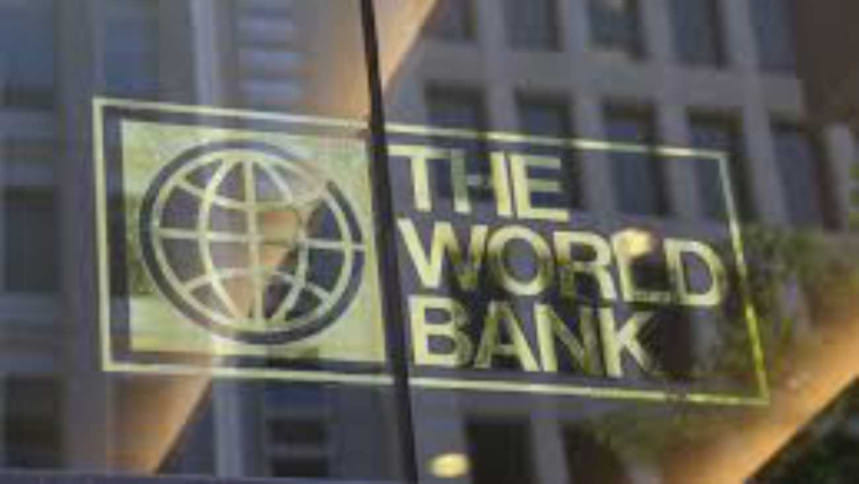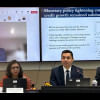Forced bank mergers could be counterproductive

The government should come up with a clear guideline complying with the global best practices before compelling banks to merge, the World Bank has said.
"Forced bank mergers may be counterproductive without a thorough assessment of asset quality," the WB said in the latest edition of its Bangladesh Development Update, which was released yesterday.
An assessment of the asset quality of weak banks will be required such that the good banks are not weakened for taking on the bad banks.
"It's very important that an asset quality review is completed using international definitions to really understand what are the strengths and weaknesses of each bank so that good banks don't take on excess liabilities beyond what they are expecting," said Bernard Haven, senior economist of the WB.
A detailed guideline on mergers and acquisitions would allow banks a clear idea about the process involved, the report said.
The guidelines can be based on international best practices and provide alternative merger mechanisms for banks to choose from depending on the status of the banks or non-bank financial institutions deciding to merge.
"Rapidly implementing bank mergers before addressing these issues (proper assessment) may further undermine confidence in the sector, deterring intermediation capacity," the WB said.
The Washington-based multilateral lender went on to term the proposed merger of Exim Bank and Padma Bank a "forced merger without a thorough assessment of asset quality".
In addition, the government can take on comprehensive reform programmes for bringing down defaulted loans.
Non-performing loans (NPL) increased by 20.7 percent year-on-year in 2023. At the end of 2023, defaulted loans accounted for 9 percent of total outstanding loans, up from 8.2 percent a year earlier.
The ratio understates banking sector vulnerabilities due to lax regulatory definitions and reporting standards, repeated forbearance measures and weak regulatory enforcement, the WB said.
"The actual magnitude of the NPL problem is likely to be significantly higher due to the legacy of regulatory forbearance."
While the BB announced a bad loan resolution roadmap in February, which followed 2023 amendments to the Bank Company Act 1991, a strong political will is necessary to enforce the plan.
A legal framework is needed to manage the stock of distressed loans, it said.
"We have seen major steps towards addressing some of the vulnerabilities in the banking sector," Haven said, adding that full implementation of the roadmap will be critical.
Creating an efficient resolution framework for NPLs is urgently needed to maintain financial stability and revive private sector credit, the WB said.
Alongside NPL management, the recapitalisation of weak banks will be vital. Reforming and enhancing the governance and structure of state-owned banks is essential to ensure financial stability.
The WB also recommended removing the interest rate cap and flexing the foreign currency exchange rate.
Though the Bangladesh Bank took several initiatives in the last one and a half years to increase the foreign currency reserve and revive the vulnerable financial sectors, the initiatives were inadequate as those were taken belatedly, it said.
The WB cited the November 2023 decision of the Bangladesh Foreign Exchange Dealers Association to allow banks to purchase remittance inflows above the formal cap by providing additional incentive payments to further its point.
The BB also allowed deviations from the remittance exchange rate cap through verbal instructions to individual banks.
"This has resulted in the re-emergence of a de facto multiple exchange rate and the divergence of the interbank and kerb market exchange rates."
By mid-March 2024, the kerb market rate reached Tk 120.5 per dollar compared to the Tk 110 per dollar interbank exchange rate cap.
The exchange rate reforms are urgently needed to rebuild the external buffers.
"Implementing a sustainable exchange rate policy is key to stemming the significant depletion of foreign exchange reserves and restoring market confidence."
The BB's latest monetary policy indicated it is considering adopting a crawling peg system to move towards a more flexible exchange rate.
However, the timeline for implementation and a technical methodology have not been announced, the WB said.
"The crawling peg would need to be a market-clearing exchange rate mechanism that reduces the gap between the formal and informal exchange rates."
That would help rebuild external buffers by attracting remittances through formal channels, making informal channels less attractive and reducing the financial account deficit by expanding trade credit and other forms of external financing.
Delays in exchange rate reforms can result in the continued depletion of international reserves to critically low levels.
Failure to make timely adjustments could result in the persistence of arbitrage opportunities and reduced foreign currency inflows through official channels, thereby perpetuating import restrictions and input shortages.
"Inadequate supply of natural gas during the peak season and inability to import sufficient LNG due to foreign exchange shortages can disrupt industrial production and investment," the report added.
Faster and bolder fiscal, financial sector and monetary reforms can help Bangladesh maintain macroeconomic stability and reaccelerate growth, said Abdoulaye Seck, the WB's country director for Bangladesh and Bhutan.

 For all latest news, follow The Daily Star's Google News channel.
For all latest news, follow The Daily Star's Google News channel. 









Comments